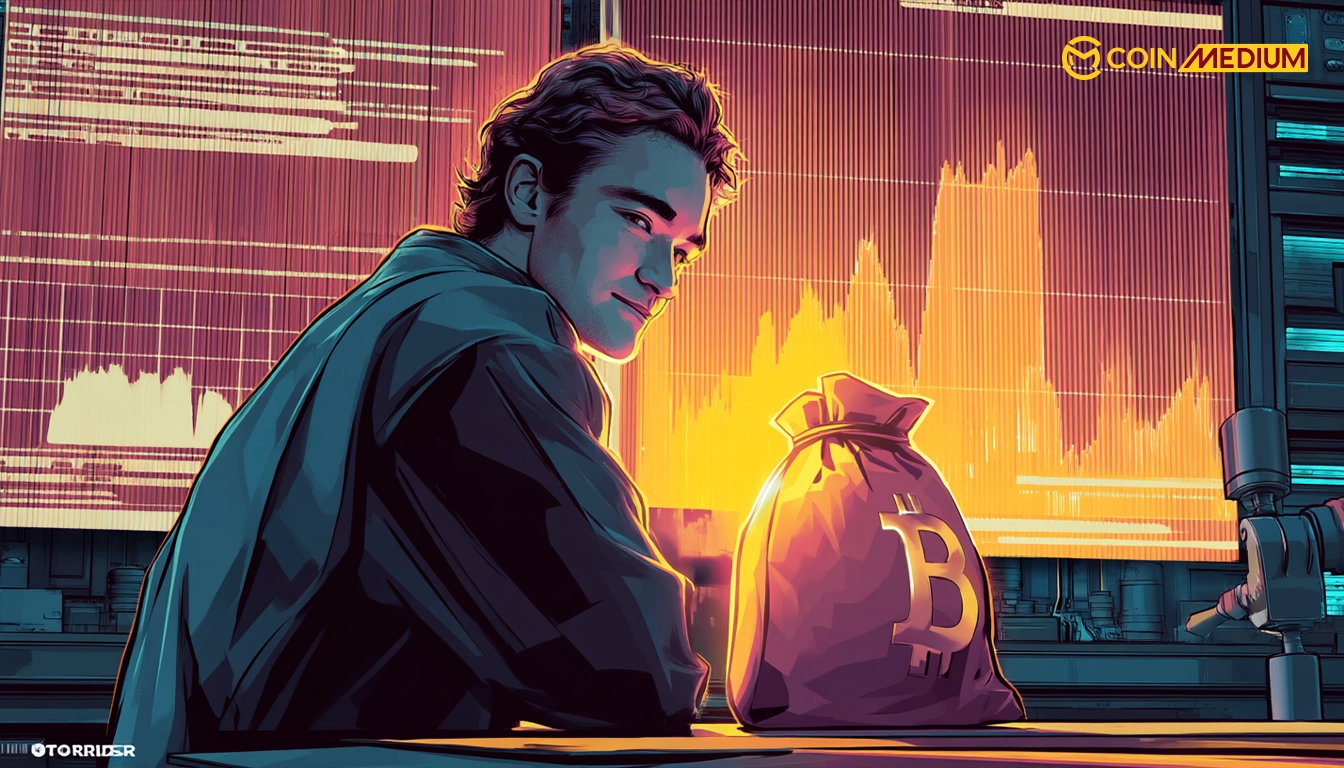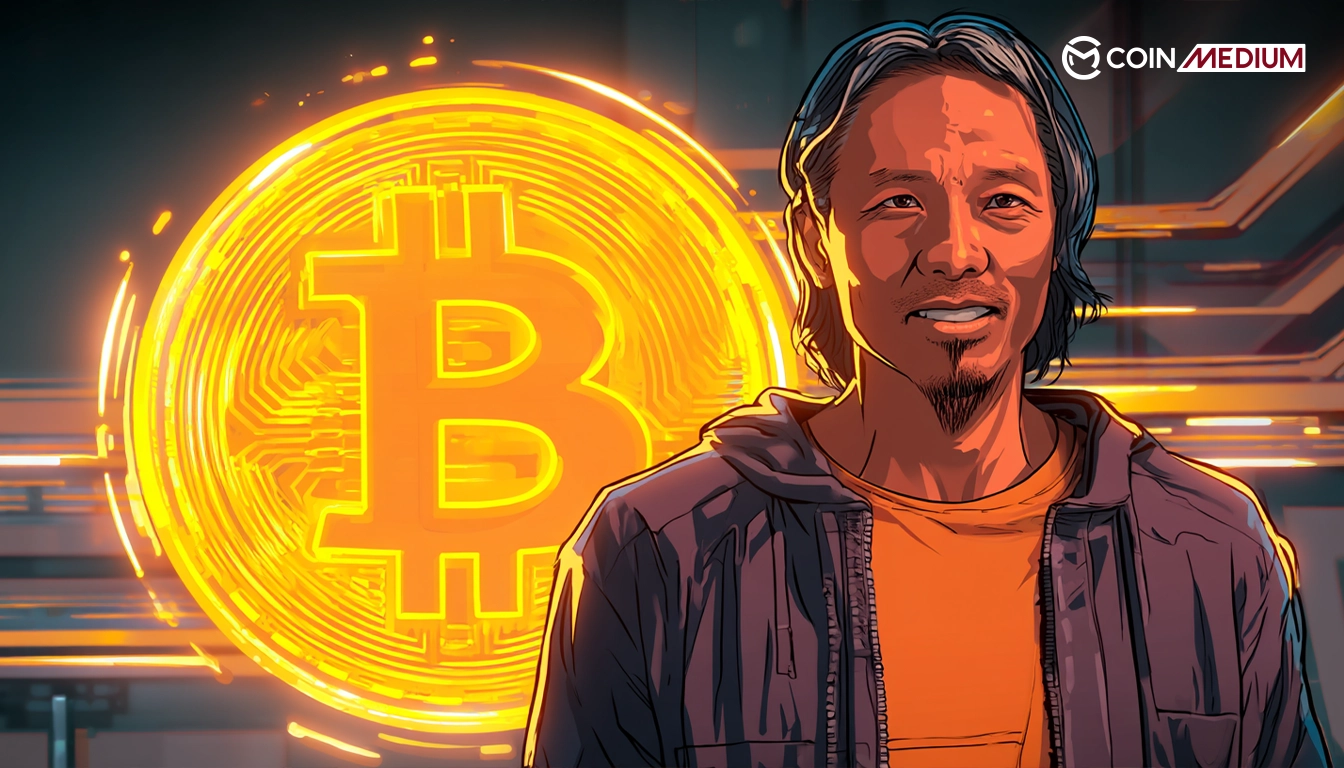Ross Ulbricht, the man who created the darknet marketplace Silk Road, has received a massive donation of 300 Bitcoins, worth about $31.4 million, from an unknown source, according to Arkham Intelligence.
Ulbricht had been serving a life sentence but was fully pardoned by U.S. President Donald Trump on January 21. He was released after spending 12 years in prison. Blockchain records show that on June 1, he sent most of the donation, roughly $31.29 million, to one address and a smaller amount, about $10,000, to another.
This is the largest donation Ulbricht has received since his release. Earlier this year, a Bitcoin wallet run by the “Free Ross” campaign collected $270,000 in donations to help him transition to life outside prison.
Ulbricht’s Auction and the Missing Bitcoin
In addition to donations, Ulbricht has been raising money by auctioning off personal belongings on the Bitcoin-only platform Scarce City. So far, the auction has brought in $1.8 million and was scheduled to run until June 2.
In a message posted on the site, Ulbricht wrote: “I’ve decided to auction some personal items from before my arrest and during my time in prison. I don’t need the reminders, and I’m sure some of you will love to have them.”
The auction items include a sleeping bag and backpack from before his arrest, prison ID cards, and paintings he created while in prison. One of his prison ID cards was sold for 5.5 BTC (over $580,000) after the original winning bid of 11 BTC wasn’t paid.
Some observers believe Ulbricht may still have access to millions of dollars in Bitcoin that were never recovered by authorities. When the Silk Road was shut down in 2013, the U.S. government seized more than 100,000 BTC, but many believe he held additional coins in wallets never identified.
Who Is Ross Ulbricht?
Ulbricht created Silk Road in 2011, an online black market that operated on the darknet. The platform allowed users to buy and sell illegal goods, mostly drugs, using Bitcoin to remain anonymous. It quickly became the focus of law enforcement agencies worldwide.
Ulbricht operated the site under the alias “Dread Pirate Roberts,” a name taken from The Princess Bride. He believed he was promoting privacy and free trade through cryptocurrency. However, U.S. authorities saw Silk Road as a major threat to public safety. He was arrested by the FBI in 2013 at a public library in San Francisco.
In 2015, Ulbricht was convicted on several charges including conspiracy to commit money laundering, computer hacking, and drug trafficking. He was sentenced to life in prison without parole. The case sparked debate, some called the sentence too harsh, while others said it sent a necessary message about cybercrime.
Since then, Ulbricht has become a symbol for people advocating for digital freedom and criminal justice reform. The “Free Ross” movement grew over the years, gathering support from across the crypto community and civil liberties activists.
Why Silk Road’s Legacy Lives On
Even though Silk Road was taken down, its model has lived on. Today, new darknet markets continue to appear, offering many of the same illegal services. These platforms accept privacy-focused cryptocurrencies like Monero, Zcash, and Dash, and employ tools like Tor, making it hard for law enforcement to track users.
Silk Road became the blueprint for a new kind of digital black market. Its influence is still seen in the structure of modern darknet sites, as well as in ongoing debates about online freedom, digital privacy, and the limits of government power in the internet age.
What’s Next for Ulbricht?
With his sudden return to public life, many are wondering what Ross Ulbricht will do next. After 12 years in prison and a high-profile presidential pardon, he has a story that many want to hear.
Some believe Ulbricht might use his platform to speak out on topics like criminal justice reform, online privacy, or the future of cryptocurrency. Others think he may write a book or launch a podcast, sharing his experience with a growing audience. Given the strong support from the crypto community, whatever he chooses to do will likely draw significant attention.
Ulbricht’s journey, from building a controversial online empire to serving over a decade in prison and now receiving a second chance, raises ongoing questions about justice, technology, and freedom. As he starts this new chapter with global attention and loyal supporters behind him, the world is watching to see whether he will retreat from the spotlight or help shape the conversation on crypto, privacy, and reform.



